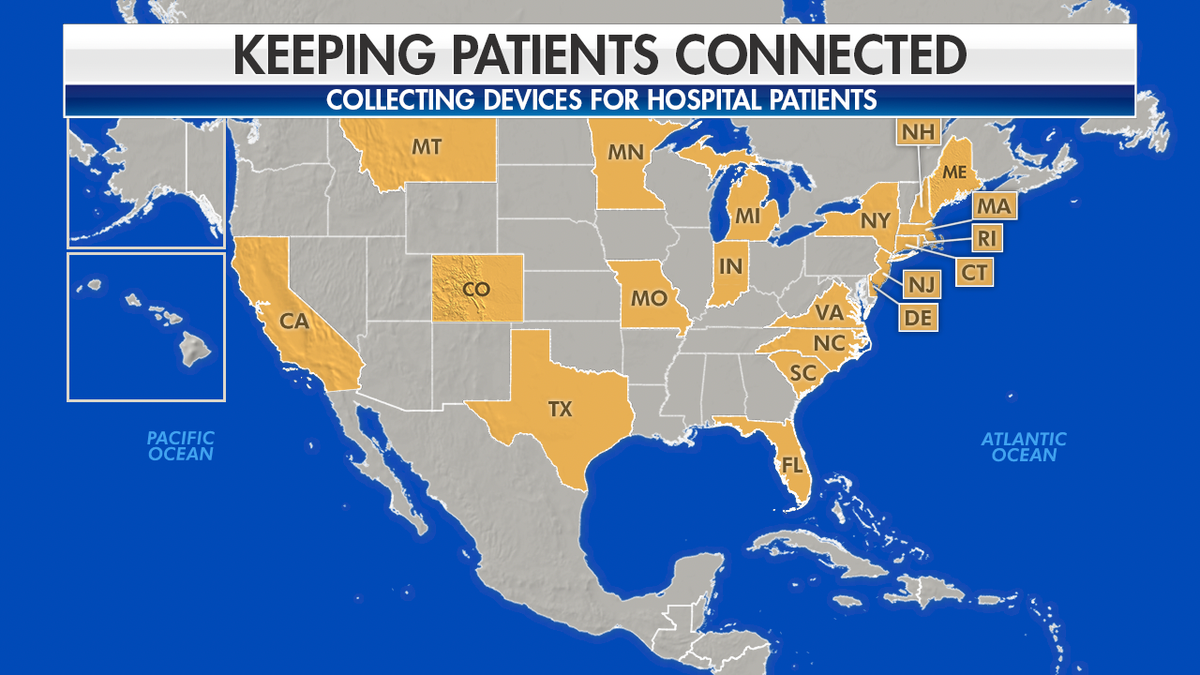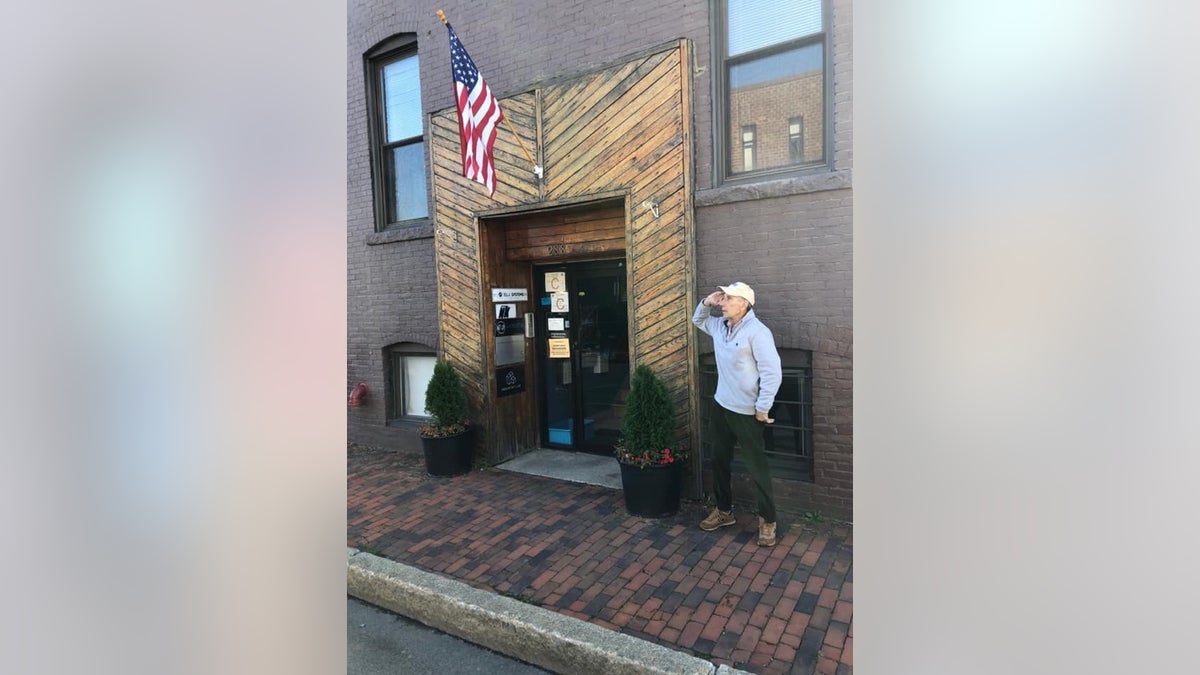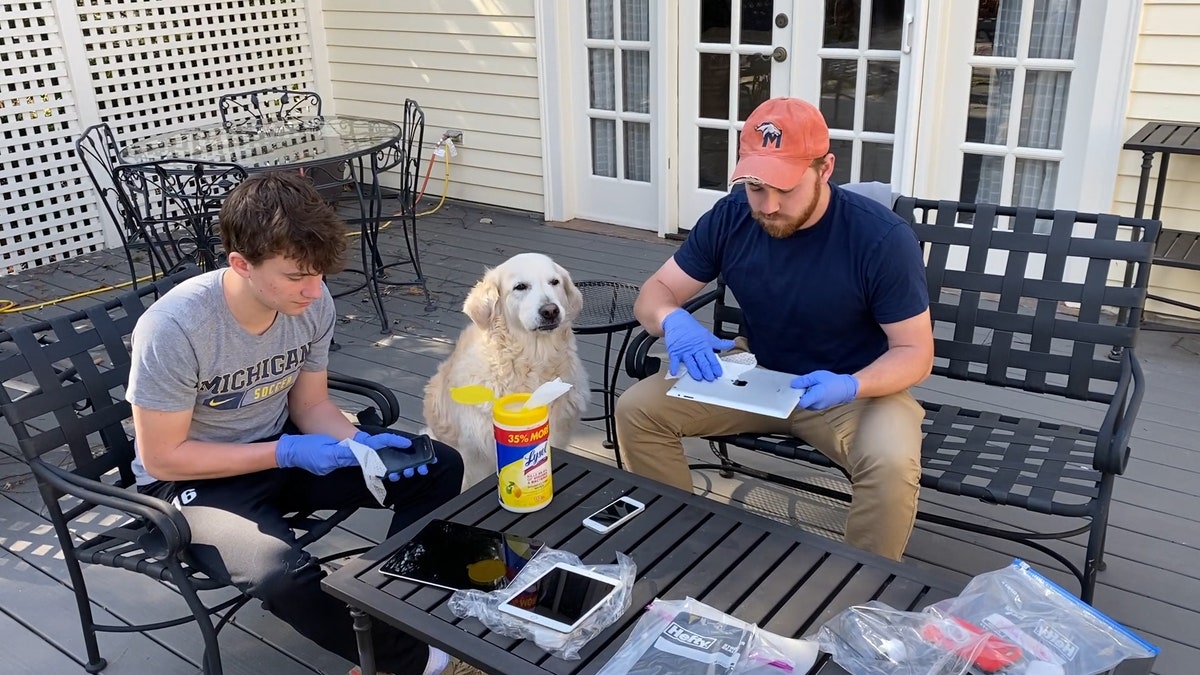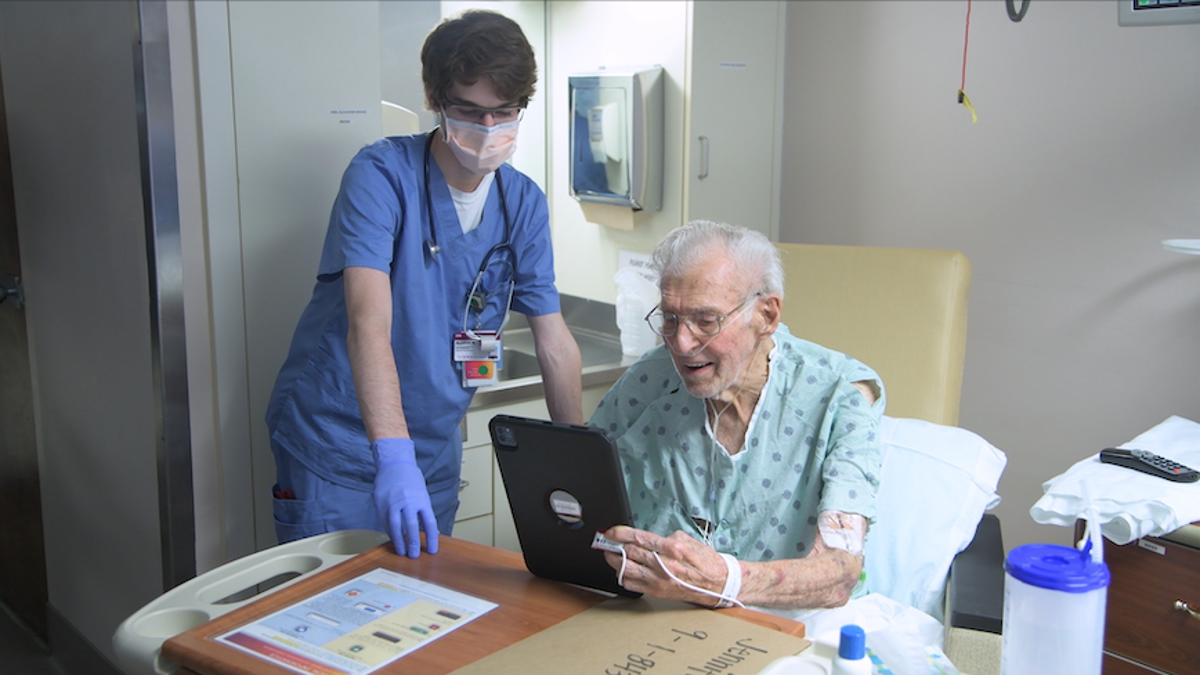Mission to collect iPads for hospital patients in isolation goes national
Stringent visitation rules barring families from seeing their loved ones due to the coronavirus pandemic often leave patients in nearly-complete isolation.
BOSTON – In this time of isolation, it's especially lonely for hospital patients who can't see their loved ones due to coronavirus-related visitation restrictions.
But a new idea that connects hospital patients with their loved ones is now going national.
Doctors in at least 19 states are collecting iPads and other smart devices for patients to use to video chat with their families. Stringent visitation rules barring families from visiting their loved ones due to the coronavirus pandemic often leave patients in nearly-complete isolation.

Initiatives to collect iPads and other smart devices for hospital patients unable to see their loved ones amid COVID-19 have launched in at least 20 states.
"You're kind of living in a nightmare," said Susan Heffron, whose father-in-law Bennett Heffron was hospitalized with coronavirus. "We tried giving the nurses a list of phone numbers, but they were so busy helping other patients."
DYING ALONE FROM CORONAVIRUS: GROUP COLLECTS USED IPADS TO VIRTUALLY CONNECT PATIENTS WITH FAMILY
Bennett Heffron, 81, died alone in the hospital a few days later. While the Heffrons did get to say goodbye in person before the COVID-19 restrictions were in place, the situation is all too similar to those in hospitals across the country.
The effort to get iPads to patients in Boston started when word got out that sympathetic nurses and doctors began lending their own personal devices to patients to connect with their families, especially to say goodbye.

Bennett Heffron, 81, a Navy veteran, died from coronavirus on March 30, 2020. (Susan Heffron)
"We truly feel a connection to these patients," said Brittany Ainslie, an intensive care unit nurse at Carney Hospital. "But [lending devices] really isn't in our best safety or the best practice of infection control."
That's when Dr. Rachel Hitt, a breast radiologist far from the frontlines of COVID-19, stepped in to help.
"I thought, that's crazy. That's dangerous," Hitt said. "We can do something about this easily."
So, with the help of her two sons, Ben and Sam Hitt, along with her friend Tisa Hughes, Hitt began flooding friends and coworkers with messages asking if they had a device they could spare.
RECOVERED CORONAVIRUS PATIENT'S MESSAGE TO ICU STAFF GOES VIRAL: 'YOU ARE ALL ROCKSTARS'
Soon, they told a friend, and then that friend told a friend, and it started spreading on social media. Now, they have a lot of tablets on their hands.
They have been using contactless methods of pickup and drop-off.
"My sons will be wearing masks and they'll pick up the devices, which will be in a Ziploc bag," Hitt said. "Then, we bring them home. And then I put my sons to work."
All they ask is that the device works, you wipe all the data off of it, and it has a front-facing camera. A charger is helpful, too, Hitt said. From there, they wipe the devices down with disinfectants, make sure they're in good working order, and then they're off to hospitals all over New England. So far, about 150 have gone out to 10 facilities in New England, Hitt said.

Sam and Ben Hitt sanitize donated iPads outside their house, with dog Abby observing.
Since the iPads arrived in the intensive care unit at Carney, Ainslie said they no longer have to give out their own devices to patients.
"It's really nice to see a patient's face light up when they get to see their loved one and all around it really promotes healing to know that, you know, you're not alone through this," Ainslie said. "Even though your family can't be here and they can't hug you and hold you, they're thinking about you and they're praying for you."
Ainslie said that in many cases, it is just not possible for patients to bring their own devices into the ICU. Each hospital handles the devices differently. Hitt hands them off to the institution's IT department and they take it from there.

A patient talks with a loved one with an iPad in his hospital room in South Carolina. (Prisma Health)
Since Susan Heffron was not able to regularly see her ailing father-in-law in his final days, she hopes the iPads will fill a void for other families going through the same thing. After he passed, she donated two tablets to Hitt's cause.
CLICK HERE FOR THE FOX NEWS APP
"I immediately said, wow, this would have been amazing if we could have had this opportunity," Susan Heffron said. "It would have been reassuring to know that at the end, he was peaceful and he was resting."
The best way to donate your old devices, Hitt says, is through email at ipads4covidcare@gmail.com or connectagainstcovid.com.



